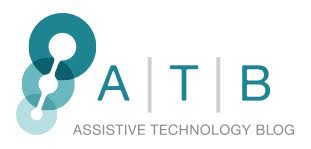Tobii PCEye – Hands Free Eye Controller for PC
 |
Tobii PCEye is an eye controlling device that lets Windows users control their PC using just their eyes. This is good news for people who have limited motor skills, spinal injuries, and neurological disorders, and are looking for alternative methods for controlling a mouse. The PCEye is a USB device that just requires a simple connection, and within a few seconds of calibration, is good to go. It can successfully track 95% of users regardless of eye/ pupil color, glasses, contact lenses, lighting conditions, and head movement.
The PCEye is only available for Windows. It works with any computer that has a 1 Ghz dual core processor or higher, 2 GB of RAM, 60 MB of video RAM, and Pixel Shader 2.0 and above . It can connect to any monitor that is 15″ – 22″ in size. PCEye has its own processor which means that it does not make your computer slow.
PCEye is available for $6,900.
Tobii, a company based in Sweden, offers PCEye in all regions around the world and provides funding and financing options as well.
I found this video on youtube that shows a demo of Tobii’s eye tracking technology.

What's dangerous here is if it's used in other fields, especially with the knowledge that sudden eye-twitching is inevitable and might cause some problems. Imagine though, using this to browse the web, with you looking at places you shouldn't.
If this eye controlling device is so advanced that it can prevent and detect unnecessary eye movements that would be great. Handicapped people can work with this device with ease. This is a good news to them specially to those who believe they cannot earn money for being a handicapped person.
dental web design
Great news. This Eye controller Project will definitely help a lot of handicapped people in using their computer. You amazingly come with exceptional posts. computer support bristol
this is indeed great for people with limited motor skills but also looks promising as an extension for the mouse and keyboard for people without limited motor skills. It will allow computers in the future to know in which context the user action has to be interpreted, which certainly is something to look forward to.
Like 'los angeles web design' and 'Rima Tipton', I'm also a little bit concerned about the unnecessary eye movements and how one would avoid problems with this. However, when using a mouse and keyboard, the problem would be less important as the eye-input will be less crucial…
For more info on the use of eye movements for contextual information, see this paper:
http://iwc.oxfordjournals.org/content/23/3/202